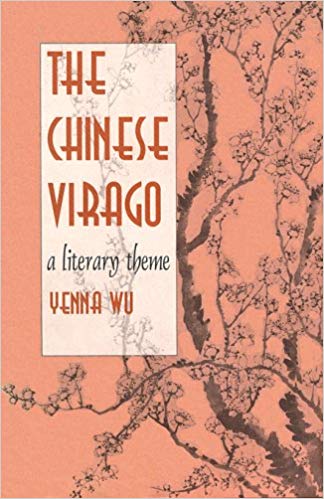Background
Yenna Wu was born on January 3, 1957, in Kaohsiung, Taiwan. Wu holds American citizenship.
No. 1, Section 4, Roosevelt Rd, Da’an District, Taipei City, Taiwan 10617
Wu attended National Taiwan University and received a Bachelor of Arts degree in 1978.
University of California,Los Angeles, CA 90095, USA
Wu studied at the University of California, Los Angeles and became a Master of Arts in 1981.
Harvard University, Cambridge, MA 02138, USA
In 1986 Wu completed her education as a Doctor of Philosophy at Harvard University.





(Drawing from literary, historical, dramatic, and anecdota...)
Drawing from literary, historical, dramatic, and anecdotal sources, Yenna Wu conducts a rich exploration of an unusually prominent theme in premodern Chinese prose fiction and drama: that of jealous and belligerent wives, or viragos, who dominate their husbands and abuse other women. Focusing on Chinese literary works from the sixteenth to the eighteenth centuries, she presents many colorful perspectives on this type of aggression, reviewing early literary and historical examples of the phenomenon. Wu argues that although the various portraits of the virago often reveal the writers' insecurities about strong-willed women in general, the authors also satirize the kind of man whose behavioral patterns have been catalysts for female aggression. She shows that various elements of these portraits constitute a subversive form of parody that casts a revealing light on the patriarchal hierarchy of premodern China.
https://www.amazon.com/gp/product/067412572X/?tag=2022091-20
1995
吳燕娜
Yenna Wu was born on January 3, 1957, in Kaohsiung, Taiwan. Wu holds American citizenship.
Wu attended National Taiwan University and received a Bachelor of Arts degree in 1978. She then studied at the University of California, Los Angeles and became a Master of Arts in 1981. In 1986 Wu completed her education as a Doctor of Philosophy at Harvard University.
Yenna Wu works at the University of California, Riverside, since 1992. Dr. Yenna Wu’s area of specialization is Chinese literature, culture, and language. Her research covers various aspects of Ming-Qing fiction; Chinese women and literature, and Chinese women’s studies; Chinese labor camp studies, human rights issues and aesthetics of political prison literature; selected contemporary Chinese, Taiwan and Sinophone narratives and films; and Chinese language textbooks designed for non-heritage learners or for heritage speakers. She has published 70 articles and book chapters as well as a number of books, translations, and reviews in both English and Chinese. Her numerous publications include The Chinese Virago: A Literary Theme(1995), The Lioness Roars: Shrew Stories from Late Imperial China (1995), Ameliorative Satire and the Seventeenth-Century Chinese Novel, Xingshi yinyuan zhuan - Marriage as Retribution, Awakening the World (1999), The Great Wall of Confinement: The Chinese Prison Camp Through Contemporary Fiction and Reportage (co-authored, 2004), Remolding and Resistance among Writers of the Chinese Prison Camp: Disciplined and Published (co-edited, 2006), Me and China(co-authored, 2008), Mandarin Chinese the Easy Way with Audio CD(co-authored, 2008), Human Rights, Suffering, and Aesthetics in Political Prison Literature (co-edited, 2011), The Thought Remolding Campaign of the Chinese Communist Party-State (by Hu Ping; co-translated, 2012), and Li Ang’s Visionary Challenges to Gender, Sex, and Politics (edited, 2014).
Professor Wu’s interdisciplinary research on Chinese women and the representation of gender dynamics has broadened to include analyses of the differences between Western feminism and Chinese women’s studies in the framework of transnational feminism and globalization. She continues her research on literary portrayals of cannibalism, engaging postcolonial discourse on this topic. In addition, she examines Ming-Qing literary representations of the cultural practice of gegu liaoqin 割股療親 as well as its connections with ethics and religion. Exploring the issues of psychological trauma and human rights through prison camp fiction and memoirs, she is interested in examining the intersections of politics and aesthetics in prison literature in an interliterary and intercultural context. Furthermore, Professor Wu studies selected contemporary Chinese, Taiwanese and Sinophone works and has edited a volume of critical essays (in English) on Li Ang 李昂, a famous feminist writer from Taiwan. She continues to do research on Li Ang’s more recent publications and Li’s exploration of the intersection of food, sexuality, and politics. One of Professor Wu’s current projects, “Betrayal, Trauma, Resilience: Resisting the Amnesia of Mao-Era Victimization Through Narratives and Films,” includes research on works about the PRC’s Great Leap Forward famine and the Jiabiangou labor camp.
(Drawing from literary, historical, dramatic, and anecdota...)
1995